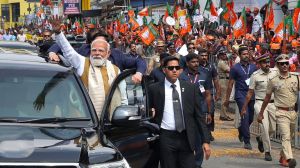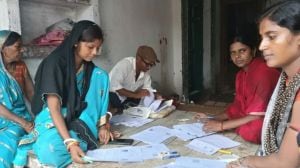Liberation Day
It is a landmark week for Indian politics. After years of muddle, the Congress has at last broken with the Left.

It is a landmark week for Indian politics. After years of muddle, the Congress has at last broken with the Left. It has been a very one-sided affair. The Left has had all the advantages, supporting the UPA when safe and reneging when risky. Since last August, the UPA Government has been paralysed by the Left blackmail on the nuclear deal. A talented team of economists 8212; the PM, FM and Montek 8212; have been stymied.
The Left is stuck in the 19708217;s or even earlier. The glory days of planning and socialist economics ended when the USSR collapsed without a shot being fired. It lost on the battleground of economic efficiency. Its satellites in Eastern Europe angrily rejected the old economy and made spectacular gains in the new market order. China gave up on Soviet Style planning when Deng Xiao Ping saw the writing on the wall and took to the Capitalist road. Jyoti Basu began on that path cautiously and Buddhadeb accelerated. Yet at the Delhi end, dark mutterings by the JNU brigade kept the UPA strapped to bad policies or rather from adopting good policies.
Now whatever happens on July 22, the Left will not have the clout it has had in the last four years. It will lose its temporary bounce and go back to around 40 seats where it has been since the 19508217;s. At the same time, Jan Sangh started with 40 and became as BJP the only opposition party that can form an alternative government. Perhaps the Left should reflect on this, may be while on vacation in North Korea which practices the policies they love.
The most likely outcome of the next election is that NDA/BJP will sneak in with a moderate majority. The Congress has wasted too many months to be able to retrieve the situation now. It will lose not because of the Deal, though that will be said, but because the quarrel with the Left has cost it valuable policy initiatives. Inflation may not come down as much as the UPA hopes for because oil price does not look like being controllable without some drastic action by the regulators in the USA. This is not on the cards in an election year. Food prices may come down a bit, but the RBI has been too lax to bring inflation down by much.
But even if I am wrong the UPA without the Left or NDA will be absolutely the answer to India8217;s economic needs. Of course, I would prefer a Grand Coalition of the Congress and BJP but let that be. The point is that the unfinished agenda of reform can now be pursued. We can have FDI in retail; this alone will ease the food price situation by reducing waste of food grains, which currently runs at 15 to 20 per cent. We can have reform of the labour laws. Then rural labourers can move to manufacturing establishments which can take advantage of economies of scale and size. Millions of jobs can be created in low-tech manufacturing for exports. Rural under-employment has been blighting the country and this has been a consequence of the Left8217;s policy of job protection which made the starting of large factories impossibly costly because of the restrictions on hiring and firing.
I hope the next government goes further. Abolish PDS and give BPL households cash vouchers for buying food. This is the policy which has worked in famine conditions. The idea is not to ensure food supply but purchasing power. The market will get food where the purchasing power is. This will also cut out the corruption. Abolish subsidies in higher education and restore discipline to the sector by charging students enough so that they will not waste their own and other people8217;s time rioting. Indeed, abolish the water and power subsidies which have been environmentally disastrous and regressive.
The break-up with the Left should be an occasion for a bonfire of all the economic delusions which have plagued policy for many years. Those who have claimed to speak for the masses have perpetuated unemployment and slowed down the removal of poverty. They have supported the waste of gigantic amounts in regressive subsidies.
Good Riddance. Freedom beckons.
The writer is Professor Emeritus of Economics at London School of Economics and a Labour Peer
Write to M.Desailse.ac.uk
- 01
- 02
- 03
- 04
- 05































